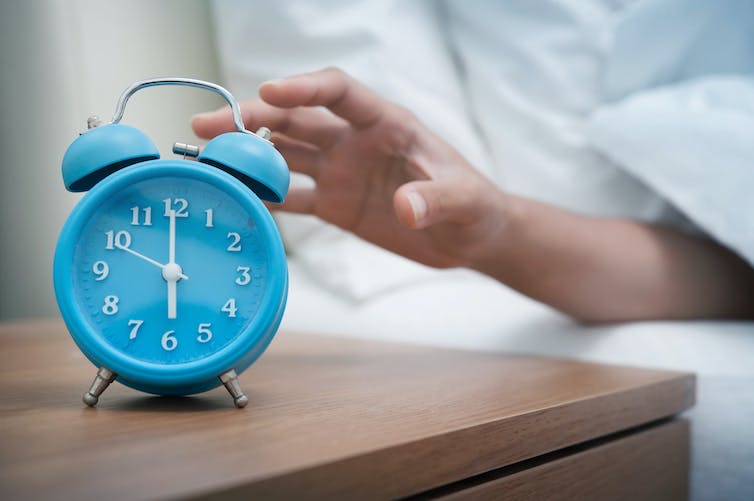Timing is everything. For early risers and late-nighters alike, listening to your internal clock may be the key to success. From the classroom to the courtroom and beyond, people perform best on challenging tasks at a time of day that aligns with their circadian rhythm.
Circadian rhythms are powerful internal timekeepers that drive a person’s physiological and intellectual functioning throughout the day. Peaks in these circadian rhythms vary across individuals. Some people, known as larks or morning chronotypes, peak early and feel at their best in the morning. Others, known as owls or evening chronotypes, peak later in the day and perform best in the late afternoon or evening. And some people show neither morning nor evening preferences and are considered neutral chronotypes.
As a researcher seeking ways to improve cognitive function, I’ve explored whether your chronotype affects your mental performance. Understanding the kinds of mental processes that vary – or remain stable – over the course of a day may help people schedule their tasks in a way that optimizes performance.
Your brain has an internal clock that influences how your body functions over the course of a day.
Why your chronotype matters
Chronotype can be measured with a simple questionnaire that assesses things like your perceived alertness, preferred rising and retiring times and performance throughout the day. Even without a questionnaire, most people have a sense of whether they are a lark or an owl or fall somewhere in between. Do you wake up early, without an alarm, feeling sharp? Are you mentally drained and ready for pj’s by nine? If so, you are likely a morning type. Do you sleep late and wake feeling sluggish and foggy? Are you more energized late at night? If so, you are likely an evening type.
People perform best on many challenging mental tasks – from paying attention and learning to solving problems and making complex decisions – when these actions are synchronized with their personal circadian peaks. This is known as the synchrony effect. Whether you are an air traffic controller scanning the radar, a CFO reviewing an earnings report or a high school student learning chemistry, synchrony can affect how well you perform.
Much of the evidence for synchrony effects comes from lab studies that test both larks and owls early in the morning and late in the day. People with strong chronotypes are more vigilant and better able to sustain attention at their peak relative to off-peak times. Their memories are sharper, with better list recall and more success in remembering “to-do” tasks like taking medication.

When you feel the urge to hit snooze may tell you something about your circadian rhythm.
eggeeggjiew/iStock via Getty Images Plus
People are also less prone to mind wandering and less distracted at their optimal time. For…



